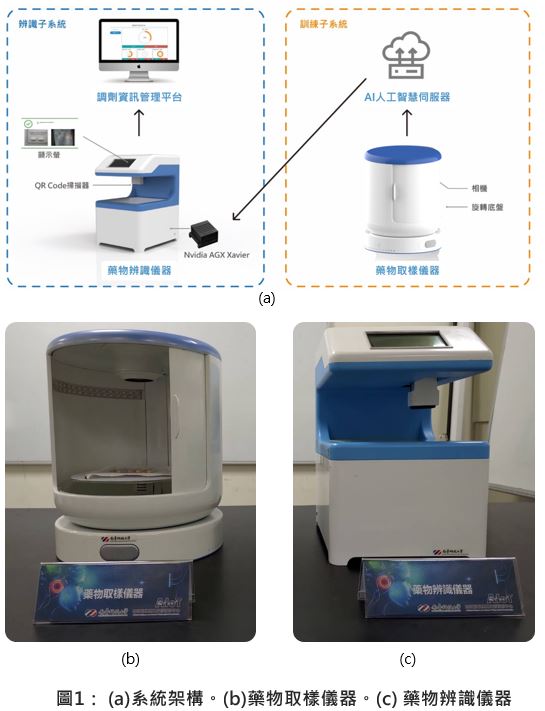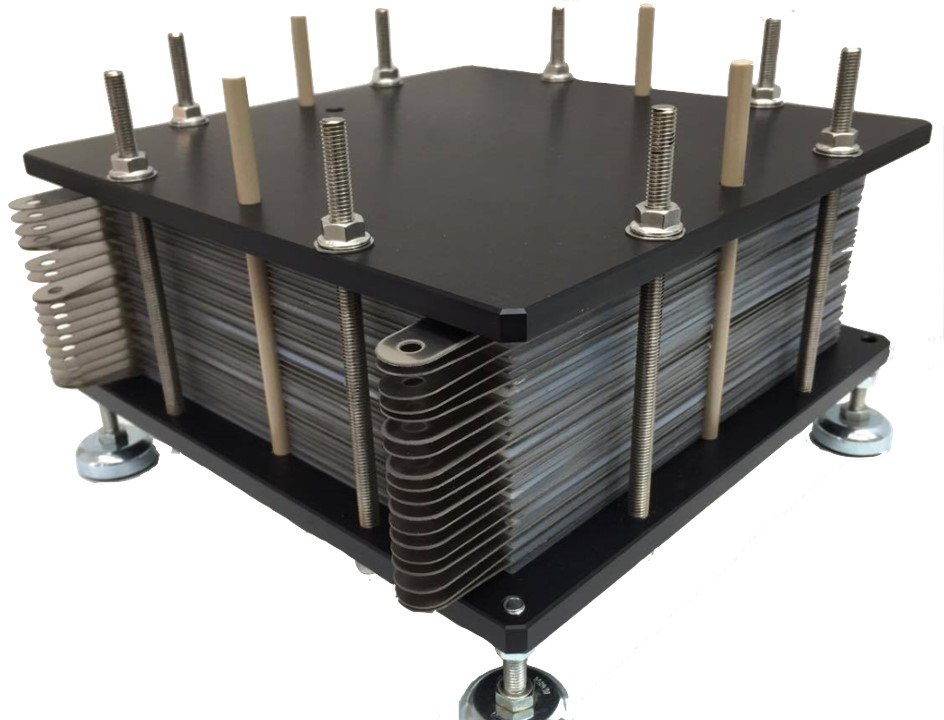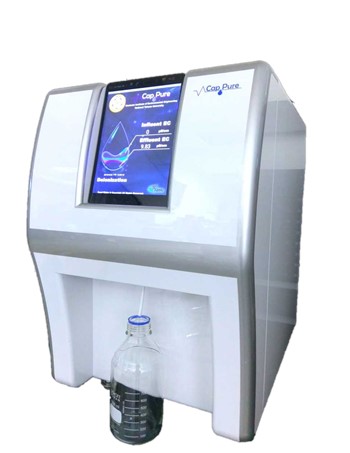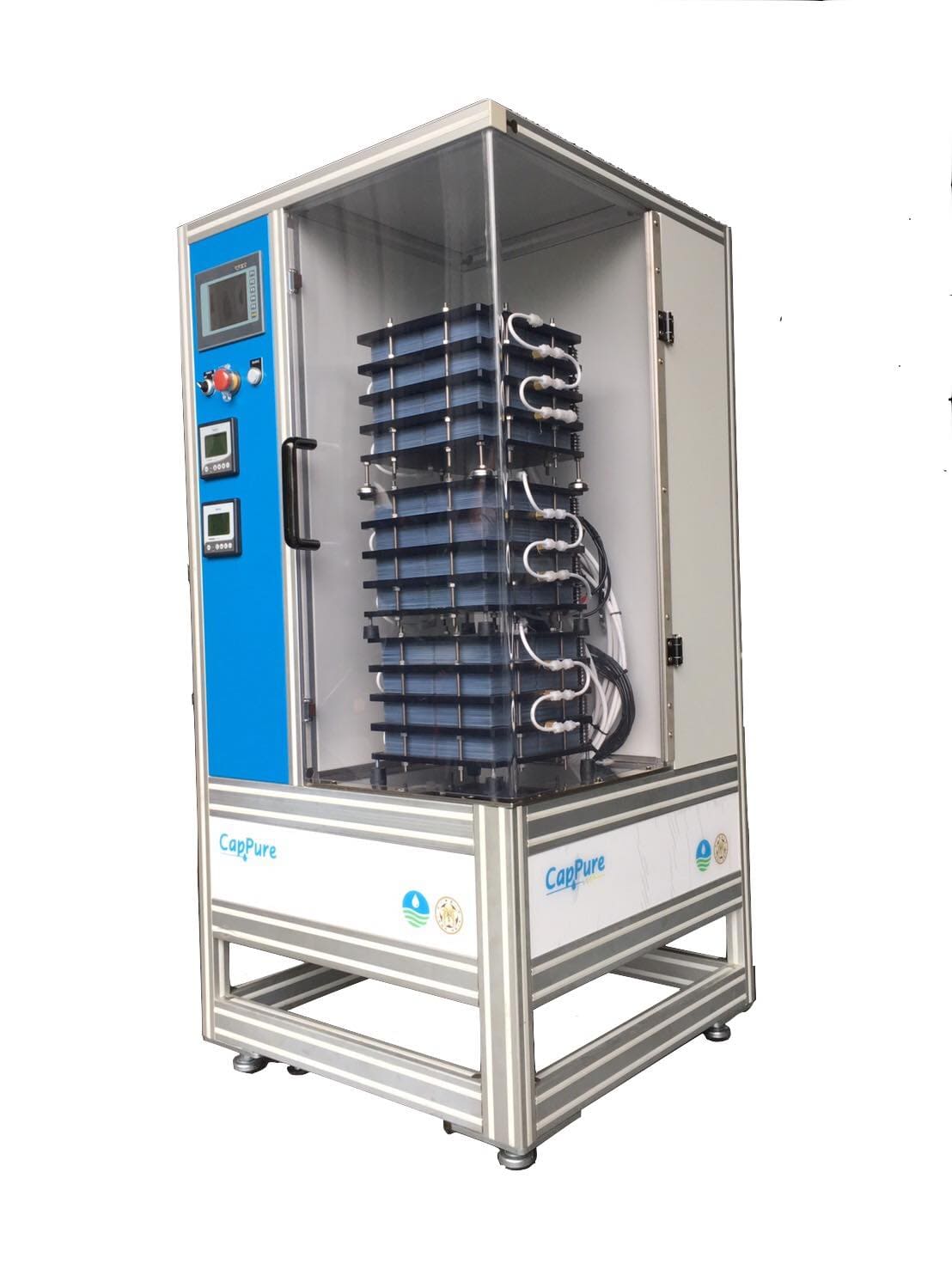| 技術名稱 |
革新性循環型電化學水處理科技: 電容脫鹽/電池採礦 |
| 計畫單位 |
國立臺灣大學 |
| 計畫主持人 |
侯嘉洪 |
| 技術簡介 |
本團隊研發之革新性之奈米電化學水處理科技,以電容脫鹽/電池採礦的處理技術,應用於低耗能水淡化脫鹽程序(如海水淡化、水再生利用),以及特定帶電荷物質的選擇性分離、有價物質的萃取(如海水中的鋰離子)、營養鹽(硝酸鹽、磷酸鹽)的回收等。
本創新技術可作為一高電吸附容量、高電流利用效率及高特定離子選擇性兼具的多功能水處理技術,技術核心在於結合電雙層電容器(electrical double-layer capacitors, EDLCs)與嵌入型電池材料(intercalation-type battery)的工作機制。以電雙層電容器而言,在施加外部電場下,產生庫倫靜電力驅使正電荷與負電荷分離,在電極孔洞表面形成電雙層結構以達到儲存能量之效果。另外,嵌入型電池材料的特點為使特定的目標離子嵌入於適合尺寸之主體晶格中,在電荷轉移過程時,進行嵌入與嵌出且不改變晶體本身結構。上述二類帶電荷離子捕捉機制可依據電極材料的特性,進行適宜的陰極/陽極配置,同時,可搭配離子交換層於電極表面,進而組成創新性非對稱式的電化學水處理技術,進一步應用於水淡化、水質淨化及廢水採礦之用途。
舉例而言,電雙層電容的發展關鍵在於奈米多孔材料的儲存電荷能力,有較高電容值的電極表示有良好的電吸附效能,因此,提升電極材料之比表面積,可促進電雙層電容器儲存電荷的能力,以低能耗的方式進行水淡化或是再生水脫鹽程序。再者,於電極材料表面上披覆離子交換膜或樹脂作為離子交換層,可進一步增加陰/陽離子之選擇性,同時,降低同離子的影響,使電流利用率與電吸附容量提升。另外,嵌入型電池的關鍵技術在於合成金過渡金屬氧化物、導電化合物等,其特性皆具備快速且可逆的氧化還原反應,可使離子以嵌入的方式將能量儲存,進而達到擴大電化學的選擇性能,從廢水中回收營養鹽離子、海水中捕捉鋰離子等。
整體而言,本團隊發展的革新性電容脫鹽/電池採礦的奈米水處理技術,可作為節省能源及高效能的循環型水處理程序,增加水資源供給的多樣性(如水淡化、再生水),平衡水中流失的物質流(如營養鹽、有價物質),改變以往以電換水的思維,並從廢水中擷取有用的資源之概念,達到資源循環永續發展之目標。 |
| 科學突破性 |
革新性之電池採礦/電容去離子技術可利用非對稱式的電化學處理方式,增加電極材料的離子選擇性吸附和提升電流效率,其中提高離子選擇性方法包含離子交換層披覆、擬電容-法拉第反應、表面電荷改質、嵌入型電池材料等,藉此達到低能耗海水淡化、再生水利用,以及營養鹽回收與稀有金屬選擇性捕捉之目標。 |
| 產業應用性 |
本團隊發展之循環型電化學水處理科技: 電容脫鹽/電池採礦,是一個清淨節能的創新技術,可應用海水淡化、再生水利用,協助解決台灣的水資源不足問題。另外可應用於用高科技產業、製造業、水供應及污染整治業等,增加水回收率、回收水中的有價物質,從而促進水的永續循環、增加有價金屬的提煉,並提升社會經濟效益。 |
| 關鍵字 |
電池材料 電容去離子 採礦技術 選擇性分離 有價物質回收 再生水 奈米工程材料 節能技術 循環經濟 |
| 備註 |
研究成果作品展出與發表,代表台灣水科技亮點。
1. 科技部新聞發表(2019.12.25),水科技再升級 臺灣技術領先國際-全球首創奈米孔洞碳材於高效電容去離子系統
2. 2019年台灣國際水週(TIWW, Taiwan International Water Week)
3. 2018、2019年:台灣創新技術博覽會,創新發明館
4. 2018年台灣國際循環經濟展
5. 2018年第8屆新加坡國際水資源週(SIWW, Singapore International Water Week) |







